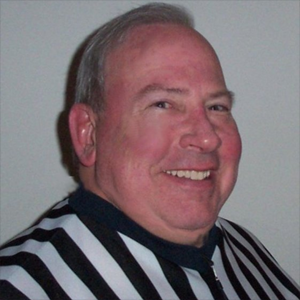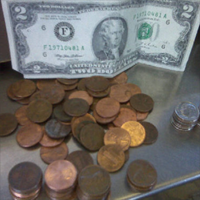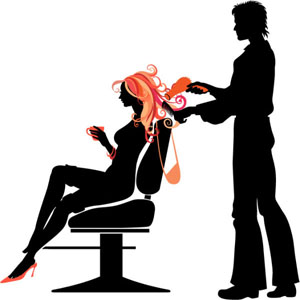
Rndballref
20 Years Experience
Chicago, IL
Male, 60
For twenty years I officiated high school, AAU and park district basketball games, retiring recently. For a few officiating is the focus of their occupation, while for most working as an umpire or basketball referee is an avocation. I started ref'ing to earn beer money during college, but it became a great way to stay connected to the best sports game in the universe. As a spinoff, I wrote a sports-thriller novel loosely based on my referee experiences titled, Advantage Disadvantage
I was suggesting that if he dropped the ball unintentionally (called a muff) he could pick it up. If he tried to pass it and then changed his mind and dropped he he could not pick it up but he could block someone out if he blocked out legally, To block out legally, a player has to legally obtain a position before the opponent alights or moves toward the spot he occupies to block out. In other words if I get to a spot before you leave your feet or step into that spot then I can block you from that spot by occupying it.
A player who alights in the air is considered to have court position from where his feet last touched the court. If the player jumps from out of bounds and touches the ball before he touches the court inbounds, it is a violation. There are 2 exceptions to this rule: 1) a defender who leaps from his front court to intercept a pass and lands in his backcourt, and 2) a defender who leaps from his front court to intercept a throw in and lands in his backcourt.
If the player comes down with both hands on the ball it is double dribble. If the player has only one hand on top of the ball it is a dribble and he cannot dribble again.
There is no specific provision in the rule book as to how loud players are allowed to be. It is a judgement call. If I thought it was excessive I would stop the game, warn the coach and warn the players and then start issuing technical fouls. Unfortunately, this behavior might intimidate young players, but at the high school level it probably will not work very well.
Toll Collector
 What happens when a car blows past a tollbooth without paying?
What happens when a car blows past a tollbooth without paying?
Hairstylist and Makeup Artist
 How much am I supposed to tip my hairstylist?
How much am I supposed to tip my hairstylist?
Programmer
 Why are most developers socially withdrawn?
Why are most developers socially withdrawn?
No, an offensive player cannot regain the ability to dribble until another player touches the ball WHILE the original player no longer possesses the ball. So if A1 has continuous possession during the time that B1 touches the ball, A1 cannot dribble for the second time. A more likely call is if B1 touches the ball and pushes it in an opposite direction than A1 is holding it, it should be called a held ball (and go to the possession arrow).
It is impossible to say or even generalize/ For example the University of Illinois, a D1 Big Ten school had scholarship player Nnanna Egwu who was born in Nigeria and didn't play basketball until 8th grade. He was considered a "project" when he was offers a scholarship. He had a good, not stellar collage career and he is trying to play pro ball but has of yet not hooked on with a team in the NBA. By the way, in college Nnanna played at 6 foot 9. The problem with being 6'2" and 165 lbs is not many schools will take on a "project" who hasn't played much ball. A lot depends on how much time a player has to develop and where the development takes place. Seems to me that most well recruited middle schoolers or even high schoolers play for very competitive AAU teams. If you want to be the best, you have to compete with the best.
This is horrible officiating and there is no provision to fix this, so the referee has to do the best he possibly can do. If I were the referee and I thought that my crew erred and the ball really hit the rim, I would think the following:1) the whistle blew and stopped the clock before it started when the official thought the ball missed the rim. Therefore, no time should have expired.2) if there is an inadvertent whistle during a time when there is no possession, it can only be resolved by the possession arrow. Reset the clock to 1.2 and go to the possession arrow.3) I think that is the best that can be done in a lousy referee-caused situation.
-OR-
 Login with Facebook
Login with Facebook (max 20 characters - letters, numbers, and underscores only. Note that your username is private, and you have the option to choose an alias when asking questions or hosting a Q&A.)
(A valid e-mail address is required. Your e-mail will not be shared with anyone.)
(min 5 characters)
By checking this box, you acknowledge that you have read and agree to Jobstr.com’s Terms and Privacy Policy.
-OR-
 Register with Facebook
Register with Facebook(Don't worry: you'll be able to choose an alias when asking questions or hosting a Q&A.)